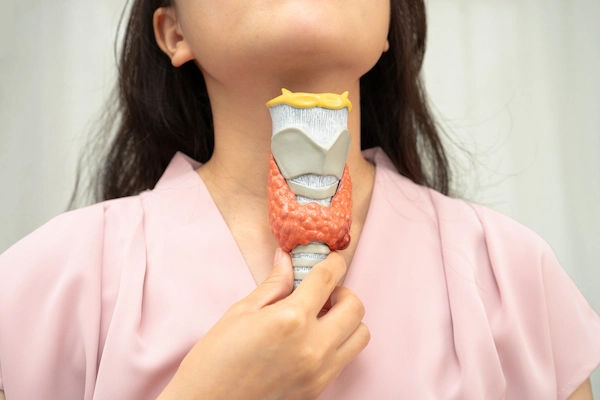- Male
- 32 Years
- 29/01/2025
My mom, who's 52, has been experiencing this burning sensation all over her body for about two months now. She's seen a couple of doctors, including a neurologist, and had tests done for sugar, BP, cholesterol, and nerves, but everything's coming back normal. The doctors recently told her she has hypothyroidism and she's been on medication for it for the last 25 days, but there's still no improvement. I'm really concerned and not sure what to do next. Could you offer any advice?
Answered by 1 Apollo Doctors
Since she has already consulted with a neurologist and undergone various tests which have come back normal, it may be worth considering neuropathic pain management. Medications such as Gabapentin (Neurontin) or Pregabalin (Lyrica) can be prescribed to help alleviate neuropathic pain. The dosage would depend on her individual condition and should be determined by her treating physician. Additionally, topical treatments like Capsaicin cream can also be used for localized relief. It's important to continue working closely with her healthcare provider to find the most effective treatment plan for her symptoms.
Dr. Kareemulla Suggests...
Consult a Endocrinologist
Answered 04/07/2025
0
0

More Endocrinology Health Queries
View allI'm a bit worried about my current ovulation induction cycle. Last time, my follicles grew just fine and reached 19mm, but now my dominant follicle went from 14mm down to 12mm. Is it normal for follicle size to decrease in a cycle? What's causing this to happen?
Yes, it is possible for follicle size to reduce in certain cycles. This can happen due to factors like hormonal fluctuations, poor response to stimulation, or changes in the body's environment. While a reduction in follicle size, such as from 14mm to 12mm, isn't typical, it can occur and may not necessarily indicate a problem. It's important to follow up with your doctor to understand the specific reasons for this change.
Answered by 1 Apollo Doctors
Is PCOS sexually transmitted?
No.
Answered by 1 Apollo Doctors
I'm 40 years old and I did a blood sugar test last week. My fasting was 124 and my postprandial (pp) was 97. I'm trying to understand why my fasting level is high since I'm not on any diabetes medication. I ran for 40 minutes just before doing this check for my fasting sugar, and I was sweating by the time I reached the lab. Could this have affected my sugar reading?
decrease in kidney size can be a good sign, but it's essential to understand the context. _Interpretation_ 1. _Variation in measurement_: The 0.9cm difference in kidney size might be due to variations in measurement techniques or equipment between the two diagnostic centers. 2. _Spontaneous improvement_: In some cases, a decrease in kidney size can indicate spontaneous improvement or resolution of an underlying condition, such as a cyst or inflammation. 3. _No cause for concern_: Since all other parameters are normal, and you're not experiencing any symptoms, this decrease in kidney size might not be a cause for concern. _Recommendations_ 1. _Consult your doctor_: Discuss the ultrasound reports with your doctor to determine the best course of action. 2. _Monitor kidney function_: Regularly monitor your kidney function through blood tests (e.g., serum creatinine, eGFR) to ensure there are no underlying issues. 3. _Follow-up ultrasound_: Schedule a follow-up ultrasound in 6-12 months to monitor any changes in kidney size or function. _When to Seek Immediate Attention_ 1. _Severe symptoms_: If you experience severe symptoms, such as flank pain, hematuria, or fever. 2. _Abnormal kidney function_: If your kidney function tests reveal abnormal results. 3. _Rapid changes in kidney size_: If you notice rapid changes in kidney size or function.
Answered by 1 Apollo Doctors
Disclaimer: Answers on Apollo 247 are not intended to replace your doctor advice. Always seek help of a professional doctor in case of an medical emergency or ailment.


